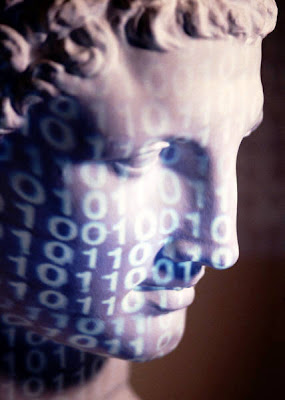The Syrian Civil War Draws the World's Attention and Some Soldiers of Fortune. But Is There Any Fortune?
The users of WMDs should be held accountable and the world community should condemn human rights abuses and should support conditions that promote good life, the right of self-determination, and the democratic process. Well, should is one thing and what is are not identical. There's lots of blame to go around, including toward the United States that wants to punish Syria's use of chemical weapons.
In the 1980s during the Iraq-Iran war, the US was giving lots of weapons and most importantly military intel to Saddam. When Iran was gaining the advantage and was ready to exploit weaknesses in the Iraqi defenses, the US alerted Baghdad. Saddam's response was to use sarin and mustard gas against the Iranians indiscriminately. He had used such chemical weapons before against Iraqi citizens opposed to his regime. The US bears lots of responsibility for aiding Saddam then.
Now president Obama has painted himself into a corner after saying the US will punish Syria if WMDs were used. He has to act in order to appear resolute. Or, does he? The world, including those bodies responsible for international law, the American people, and most of our allies are against US military intervention in Syria right now.
 |
| Human suffering abounds |
Sorry, Mr. President, you have not changed many of the "national security" policies of your predecessor--policies you were against as a Senator and as a presidential candidate. Of course you've done a few good things, but the spying, the drones, GITMO, and now this looming war make us to stand back, disapprove and ask lots of questions.
The so-called Middle East region is very complicated. Ethnic, religious, political, and cultural conflicts have been shaking the region for thousands of years. Religion is a major factor of how people behave there. We shouldn't forget that Europeans fought many bloody wars and massacres were fueled by religious zeal. The M.E. is no different. Currently, there's a big fight between the Sunni and and Shia sects. The Saudis have been supplying weapons to the Syrian opposition. Jihadists have also been participating the that civil war.
Syria has the support of Iran because of the Shia link. Most of the Muslims in the region (and the world) are Sunnis who fear the Shia Ayatollahs. The Iraqi civil war--yes, it's been going on since the US invaded in 2003--also has these two groups against each other. Same with conflicts in Lebanon, and the Palestine greater region.
Obama said he wants to "fire a shot across the bow" to tell the Syrians, "you can't do this". But these shots often don't work. What's the next move then? The only way to stop Assad is to seriously damage his power structure--the military, his top generals, and his ability to maintain his government. But, then we're talking about regime change! This isn't very appealing either, because we don't know who comes next. It could be worse as there are lots of extremist religious fanatics on the other side.
This is a problem with countries that turn into very messy situations. Boots on the ground is an option, generally speaking, but not very likely now or in the near future. Certainly the US public has no appetite for such, nor the rest of the big powers.


.jpg)
.jpg)
















